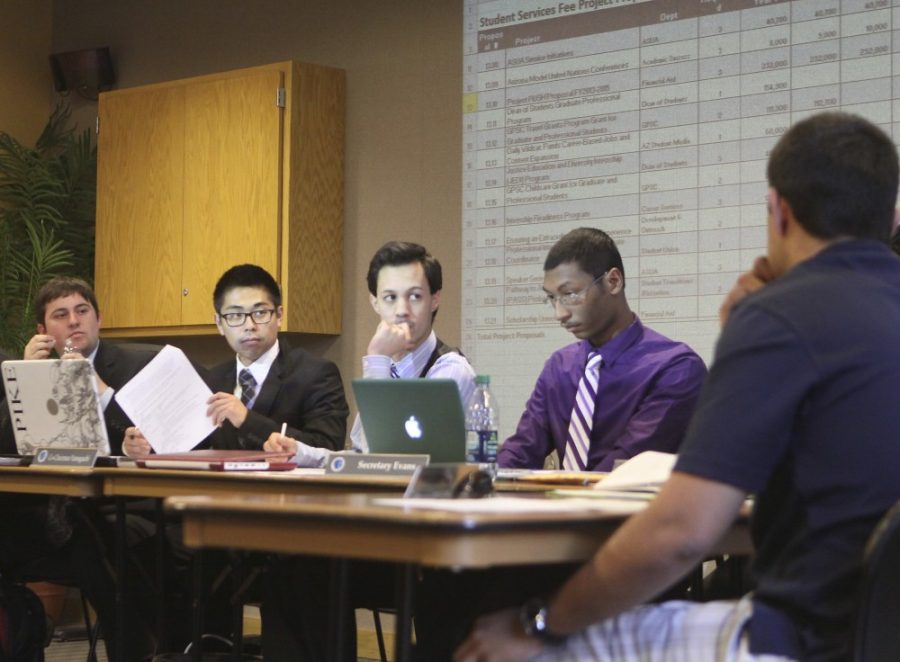The Student Services Fee Advisory Board allocated its remaining funds on Friday.
The board granted $209,300 of student fees to the Student Advocacy and Assistance program for three years of funding, $43,500 of which will be used this year. The Associated Students of the University of Arizona also received $125,000 and $20,000 went to the Graduate and Professional Student Council for club funding.
Friday’s meeting was held to disperse the remaining $311,000 of the $1.5 million in student funds this year, but the board dipped into its $200,000 reserve by going $7,500 over the limit.
The Student Advocacy and Assistance program is like the “one-stop shop” for students with academic or personal issues, said Blanca Delgado, a public health junior and member of the board. The program requested funding for three years for two coordinator positions to assist and refer students.
“I do support this program (ASUA), however I’m disappointed in the fact that ASUA relies on this board in order to fund … a huge portion of their budget when this is one of the most far-reaching programs for their students and the students they represent,” said May Mgbolu, a political science senior and board member. “They should not depend on this board to continue to fund the appropriation board.”
Additionally, the Daily Wildcat received $60,000 to expand its online content and create student jobs. The Justice Education and Diversity Internship Program, a program that assists interns involved in several cultural center programs, received $40,000.
The board also allocated $25,200 to the UA Student Emergency Medical Services Club, advising that the club move away from “club status under ASUA.”
“I’m just saying that I would not like to open Pandora’s box for clubs and get a million applications from them every year,” said Reid Nelson, a junior marketing director and board member. “This is a very unique club with a lot of potential.”
The board denied a request for $100,000 from ASUA to fund visits from notable speakers such as Maya Angelou and Jon Stewart. The request was deemed “unnecessary” and a “luxury,” board members said.
A request for $8,000 to send Arizona Model United Nations members to their national conference in Chicago was also denied. Members argued that though the club worked hard to raise money on their own, it is not the job of all students to pay for a trip for Arizona Model United Nations members.
“I don’t think that … by passing this application, we’re serving the greater population of the U of A. There’s more than 40,000 students on this campus, and this club only represents maybe 100, and so by us spending … this amount of money on just 100 students, I don’t think we’re looking for the best interest of the student body,” Mgbolu said.
The board focused and often commented on the writing style of applications, in addition to various club applications that did not adequately demonstrate need for funding or the legitimacy of the clubs’ programs.
“This (ASUA application for club funding) would get a ‘C-’ on a good day, but I would recommend they go … next door to GPSC in the future and ask GPSC how to write an application so they can get all the money they want,” said Zachary Brooks, a graduate student studying second language acquisition and teaching.
Student Affairs releases a yearly survey to all students in October asking them how they’d like to see their fee money used and how satisfied they were with its use thus far. These surveys are taken into account, among other factors, when board members decide what applications to approve or deny.









